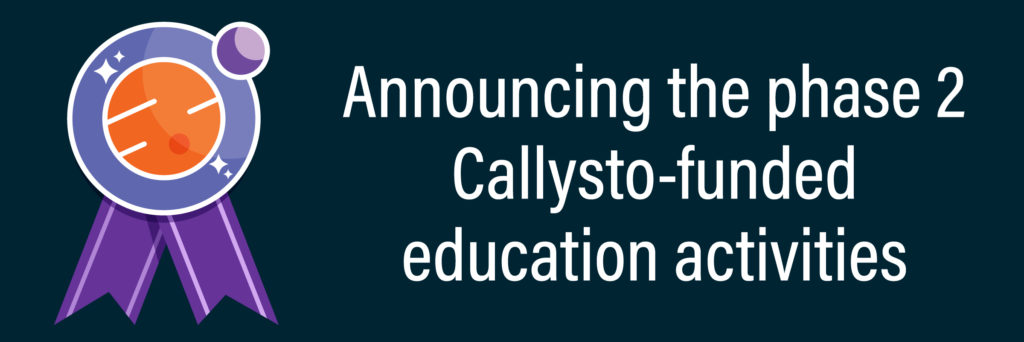Thanks to everyone who submitted proposals for phase 2 of Callysto’s Call for Proposals. This initiative supports digital literacy learning opportunities for teachers and students across Canada. We’re pleased to award funding to several organizations. The funded activities from these organizations – from greenhouse automation to machine learning – will promote coding and computational thinking for Grades 5-12 students and teachers in fun and creative ways.
Please note: These activities will be revised to take COVID-19 measures into account, including offering online delivery options.
Phase 2 Callysto Call for Proposals recipients
Teaching Indigenous culture through mathematics
Department of Mathematics, Simon Fraser University – British Columbia
In this project, students from across Canada will explore Indigenous culture through activities involving mathematical models of various artifacts, including woven baskets, motifs, and fish traps.
Data discoveries in sports and public health
HighTechU (University of Victoria) in collaboration with engageLively – British Columbia
In these online sessions, students will learn how to use data analytics and visualization to create new insights about public health and competitive sports. Additionally, students will learn Python programming basics and how to access open datasets online.
Developing open education resources
Athabasca University – Alberta
In this project, Athabasca University will develop curriculum-aligned, open educational resources (OER) for Alberta high school teachers and students. The “open” in OER refers to the resources developed by the project, including lesson plans, which will be free to use, adapt and remix. These resources will connect to Alberta Education’s Career and Technology Studies curriculum.
Rural outreach with Callysto
Discover Coding – Alberta
To support students in rural locations to learn coding and computational thinking skills, Discover Coding will offer “Discover Python with Callysto” and “Hour of Callysto” sessions. In “Discover Python with Callysto”, students will use Python code to solve real-world problems related to math, art, and engineering. In “An hour of Callysto”, students will follow a guided, interactive tutorial on how a Python program is constructed to solve a problem.
Machine learning with Python and Jupyter notebooks
Athabasca University and École Bellevue School – Alberta
Elementary students will be introduced to machine learning and electronics design basics through beginner programming sessions. The learning modules developed from this project will be added to Callysto’s open-source, curriculum-tied resources.
Callysto student and teacher training: Giving back to the community
Two Hills School – Alberta
Two Hills School will work with Callysto experts to provide teachers and students with approachable digital literacy learning opportunities. The long-term goal is to build students’ skills in these areas so they can partner with the local Family Community Support Services and Adult Learning Council to create learning opportunities for the community.
Automating a greenhouse
Eaton School – Saskatchewan
Grades 5-9 students will work together to learn coding and electricity fundamentals in order to create an automated greenhouse. The greenhouse will be powered using a Raspberry Pi (a mini computer board), and monitored by a variety of sensors. Students will learn how programming languages such as Python can allow computers to accomplish greenhouse tasks, such as watering plants.
Data management in high school
Living Sky School Division – Saskatchewan
To help students learn how to obtain, organize, and interpret data, Living Sky School division will develop a credit-based learning module for high school students. The module will provide teachers and students with an understanding of data analysis using Python and Jupyter notebooks, as well as how to use open data sources. Students will demonstrate their learning by doing a data-related inquiry project on a topic of their choice.
Python training and classroom resources
RabbitMath, Queen’s University – Ontario
RabbitMath, based out of Queen’s University, develops high-school math curriculum by involving students in the design and creation of dynamic mathematical structures. RabbitMath’s project will facilitate Python training workshops for teachers and students, as well as develop Python-based classroom learning materials.

